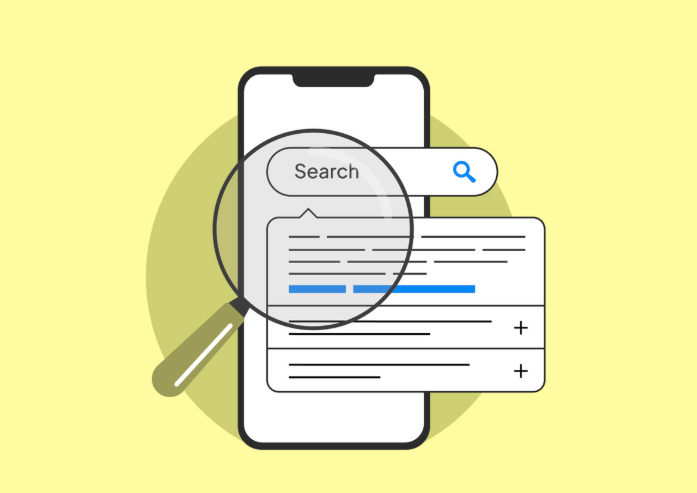In today's digital age, being visible on the web is more crucial than ever for businesses. The internet has revolutionized the way consumers discover, research, and interact with companies. It's no longer sufficient to have a great website; you need to ensure that potential customers can find it, especially when they're searching for local products or services. This is where Location-Based SEO comes into play.
Location-Based SEO is a subset of traditional SEO, focusing on optimizing your online presence to rank well in local search results. Whether you run a small coffee shop, a neighborhood clinic, or a large corporation with multiple locations, Location-Based SEO can significantly impact your online visibility and bottom line.
In this comprehensive guide, we'll discuss the core concepts of Location-Based SEO, its importance, how it works, and how to implement it effectively.
Understanding Location-Based SEO
What is SEO?
Before we dive into the specifics of Location-Based SEO, let's establish a solid understanding of SEO itself. SEO, or Search Engine Optimization, is the practice of enhancing your website's visibility in search engine results. The ultimate goal of SEO is to improve your website's ranking in organic (non-paid) search results on platforms like Google, Bing, or Yahoo.
SEO encompasses various techniques and strategies, from optimizing your website's content and structure to building quality backlinks, improving site speed, and ensuring mobile-friendliness. Successful SEO allows your website to appear higher in search results, ultimately leading to increased web traffic, brand exposure, and, most importantly, conversions.
The Importance of Local SEO
Local SEO, a subset of SEO, is specifically geared towards businesses with a physical presence or those targeting a specific geographic area. Local SEO aims to increase a company's visibility in local search results, particularly in the "Local Pack" or "Map Pack" (the section of the search results that displays a map and a list of businesses).
The importance of Local SEO cannot be overstated. Consider these statistics:
- According to Google, over 46% of all searches have local intent, meaning users are looking for products or services near their location.
- 88% of consumers who search for local businesses on a mobile device either call or visit the business within 24 hours.
- 72% of consumers who performed a local search visited a store within five miles.
- 92% of searchers will pick businesses on the first page of local search results.
These figures underscore the need for businesses to focus on their local visibility. Whether you run a brick-and-mortar store, a restaurant, or a service-oriented business, harnessing the power of Local SEO can lead to tangible and immediate results.
How Location-Based SEO Works
To understand Location-Based SEO, it's essential to recognize the key components and strategies that make it function effectively. Location-Based SEO operates through a combination of on-page and off-page optimization techniques, with a particular emphasis on Google My Business (GMB) optimization.
On-Page Optimization
On-page optimization is the process of optimizing the elements on your website to make it more search engine-friendly and user-friendly. Key components of on-page optimization for Location-Based SEO include:
- Keyword Optimization: Research and use relevant keywords that have local intent. For example, a bakery in New York City might target keywords like "best bakery in NYC" or "NYC artisanal bread."
- Meta Tags: Include location-specific information in your meta title and description to improve your website's relevance to local searches.
- Content Creation: Develop high-quality, informative, and engaging content that caters to local interests and needs. This can include blog posts, landing pages, and informative guides.
- NAP Citations: Ensure that your Name, Address, and Phone (NAP) information is consistent across your website, social media profiles, and online directories.
- Schema Markup: Implement schema markup to provide search engines with structured data about your business, including your name, address, phone number, business hours, and more.
- Mobile Optimization: Make sure your website is mobile-responsive, as Google prioritizes mobile-friendly sites in search results.
Off-Page Optimization
Off-page optimization focuses on factors outside of your website that impact your search engine rankings. Key elements of off-page optimization include:
- Local Link Building: Acquire high-quality backlinks from local websites, directories, and authority sources. These local links help establish your website's credibility in the eyes of search engines.
- Online Reviews: Encourage satisfied customers to leave positive reviews on platforms like Google, Yelp, and Facebook. Positive reviews can enhance your local rankings and build trust with potential customers.
- Social Signals: Maintain an active presence on social media platforms. Engaging with your audience and sharing local content can improve your local SEO.
Google My Business
Google My Business (GMB) is a pivotal element of Location-Based SEO. GMB is a free tool provided by Google that allows businesses to manage their online presence, particularly on Google Search and Google Maps. To optimize your GMB listing:
- Complete Your Profile: Ensure that your GMB profile is complete, accurate, and up-to-date. Include essential information such as your business hours, website URL, and a brief description.
- Select Relevant Categories: Choose the most appropriate categories that describe your business. This helps Google understand your business and display it to relevant searchers.
- Upload High-Quality Photos: Include high-resolution images of your business, products, and services. Visual content can significantly impact your GMB listing's attractiveness.
- Ask for Reviews: Encourage happy customers to leave reviews on your GMB listing. Reviews not only influence rankings but also build trust with potential customers.
- Post Regular Updates: Share posts, updates, and events through your GMB listing. This keeps your information fresh and engaging for searchers.
4. Benefits of Location-Based SEO
Now that we've covered how Location-Based SEO works, let's explore the myriad benefits it can bring to your business.
Enhanced Visibility
One of the primary advantages of Location-Based SEO is increased visibility in local search results. When users search for products or services near their location, your business is more likely to appear at the top of the results, especially in the Local Pack. This enhanced visibility ensures that potential customers discover your business first, leading to more site traffic and foot traffic for physical businesses.
Targeted Traffic
Location-Based SEO allows you to attract highly targeted traffic. When your website ranks well for local keywords, you're more likely to reach users who are actively looking for the products or services you offer in your specific area. This not only increases the likelihood of conversion but also improves the quality of your traffic.
Increased Credibility
Appearing in local search results, particularly in the Local Pack, can significantly boost your business's credibility. Many users associate top-ranked businesses with reliability and trustworthiness, making them more likely to engage with your business. This increased credibility can also result in higher click-through rates and conversions.
Improved User Experience
An essential aspect of Location-Based SEO is optimizing your website and GMB listing for mobile users. As a result, you provide a better user experience for visitors accessing your site on their mobile devices. Improved mobile usability not only pleases users but also aligns with Google's preference for mobile-friendly websites, potentially leading to higher search rankings.
Cost-Effective Marketing
Compared to traditional advertising methods, Location-Based SEO is a cost-effective way to reach a local audience. Paid advertising can be expensive and may not deliver the same long-term benefits as organic search rankings. By investing in Location-Based SEO, you can secure long-lasting visibility without ongoing ad spend.
Implementing Location-Based SEO
Now that you understand the benefits of Location-Based SEO, it's time to delve into how to implement it effectively for your business.
Keyword Research
Keyword research is a foundational step in Location-Based SEO. Start by identifying local keywords that are relevant to your business. Use keyword research tools like Google Keyword Planner, Ahrefs, or Moz to discover keywords with local intent. For example, you can target keywords like "dentist in [your city]," "plumber near me," or "best Italian restaurant in [your neighborhood]."
On-Page Optimization Tips
- Optimize Meta Tags: Ensure that your meta title and description include relevant local keywords.
- Create Location-Specific Content: Develop high-quality content that caters to the interests and needs of your local audience. This can include blog posts, guides, and articles that highlight local events, trends, and news.
- Local Structured Data: Implement schema markup with local structured data to provide search engines with detailed information about your business, including address, phone number, and business hours.
- Mobile Optimization: Prioritize mobile-friendliness by using responsive design and optimizing for mobile devices.
Local Link Building
- Local Directories: List your business on local directories like Yelp, Yellow Pages, and Angie's List. Ensure that your NAP information is consistent across all directories.
- Local Citations: Acquire local citations from local businesses, organizations, and chamber of commerce websites. These citations are mentions of your business's NAP information.
- Local Outreach: Connect with local bloggers, influencers, and organizations. Collaborate on content and outreach to acquire backlinks from local sources.
Google My Business Optimization
- Complete Your Profile: Fill out your GMB profile with accurate and up-to-date information, including business hours, website URL, and a concise description.
- Select Relevant Categories: Choose the most suitable categories to describe your business accurately.
- Add High-Quality Photos: Upload high-resolution images of your business, products, and services. Use photos that showcase your brand's identity.
- Ask for Reviews: Encourage satisfied customers to leave reviews on your GMB listing. Respond to reviews, both positive and negative, to show your engagement and commitment.
- Post Regular Updates: Share posts, updates, and events through your GMB listing to keep your information fresh and engaging.
Measuring and Tracking Success
Effective Location-Based SEO isn't a one-and-done task; it requires ongoing effort and measurement. To gauge your success, you can employ various tools and analytics, including:
- Google Analytics: Monitor website traffic, user behavior, and conversion rates to see how Location-Based SEO impacts your online performance.
- Google Search Console: Analyze your website's presence in Google's search results and address any issues that might affect your rankings.
- Google My Business Insights: Track the performance of your GMB listing, including views, clicks, and actions taken by users.
- Local SEO Tools: Leverage tools like Moz Local, BrightLocal, or SEMrush to track keyword rankings, monitor local citations, and assess your overall local SEO performance.
By continuously monitoring your performance and adjusting your strategy accordingly, you can ensure that your Location-Based SEO efforts are maximizing your ROI.
Conclusion
Location-Based SEO is an indispensable strategy for businesses seeking to thrive in the digital landscape. With the majority of consumers relying on online searches to find local products and services, optimizing your online presence for local searches can significantly impact your visibility, credibility, and revenue. To successfully implement Location-Based SEO, follow the strategies mentioned, conduct thorough keyword research, optimize your website and GMB listing, and track your progress with analytics tools.
Take the first step towards revolutionizing your local SEO efforts with The Diamond Group. Contact us today, and let us guide you through this exciting journey. Together, we'll optimize your local SEO outreach to enhance your marketing strategies, connect with your ideal customers, and drive remarkable results.
About The Diamond Group
The Diamond Group is a Wilmington, NC based digital marketing and web design agency committed to helping today's small businesses grow and prosper. With a 30-year track record of success, their proprietary in-house system and concierge-level multi-disciplinary team approach to marketing guarantees double-digital growth and optimizes marketing ROI.
Related Posts

Waiting On SEO Results? Here’s What You Can Actually Control
